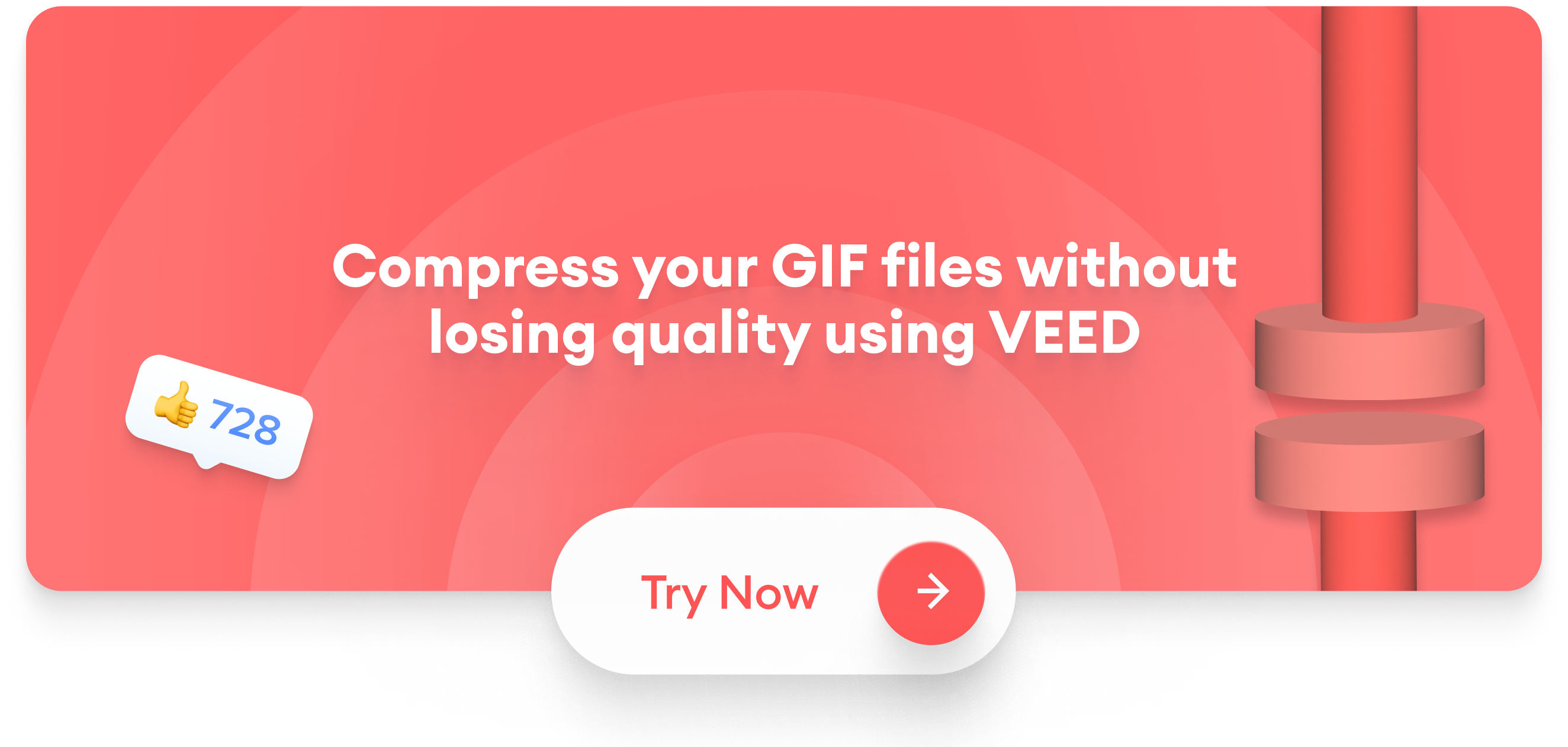Want to add a GIF to an email, landing page, or presentation, but it's too big to fit? Try VEED’s free GIF compressor to reduce your GIF’s file size and use it anywhere. Here’s how to compress a GIF like a pro in just five steps.
Step-by-Step Quick Summary
1. Go to the VEED GIF Compressor Tool and Upload the GIF
2. Adjust the Level of Compression Using the Slider
3. Choose the Resolution from the Dropdown Menu
4. Go to Advanced Settings for More Options
5. Press Compress Video to Download GIF

How to Compress a GIF Online with VEED
Most GIF compressors you see online are slow, complicated, and glitchy. VEED’s GIF compressor is designed as a slick and hassle-free alternative for all these problematic tools to compress GIFs in a few seconds.
Here’s the best part: you can make a GIF file smaller using advanced settings and edit your video clips to add overlay text and images, remove the background, include on-brand elements, and much more—all on a single tool.
Say goodbye to the struggle of jumping from one tool to another because VEED’s video and GIF editor has everything you need.
Here's a step-by-step guide to reducing GIF size online using VEED:
[#TOC1]1. Go to the VEED GIF Compressor Tool and Upload the GIF[#TOC1]

Go to the VEED GIF compressor tool and click on the "Choose GIF File" button.
Next, upload your GIF from your system.
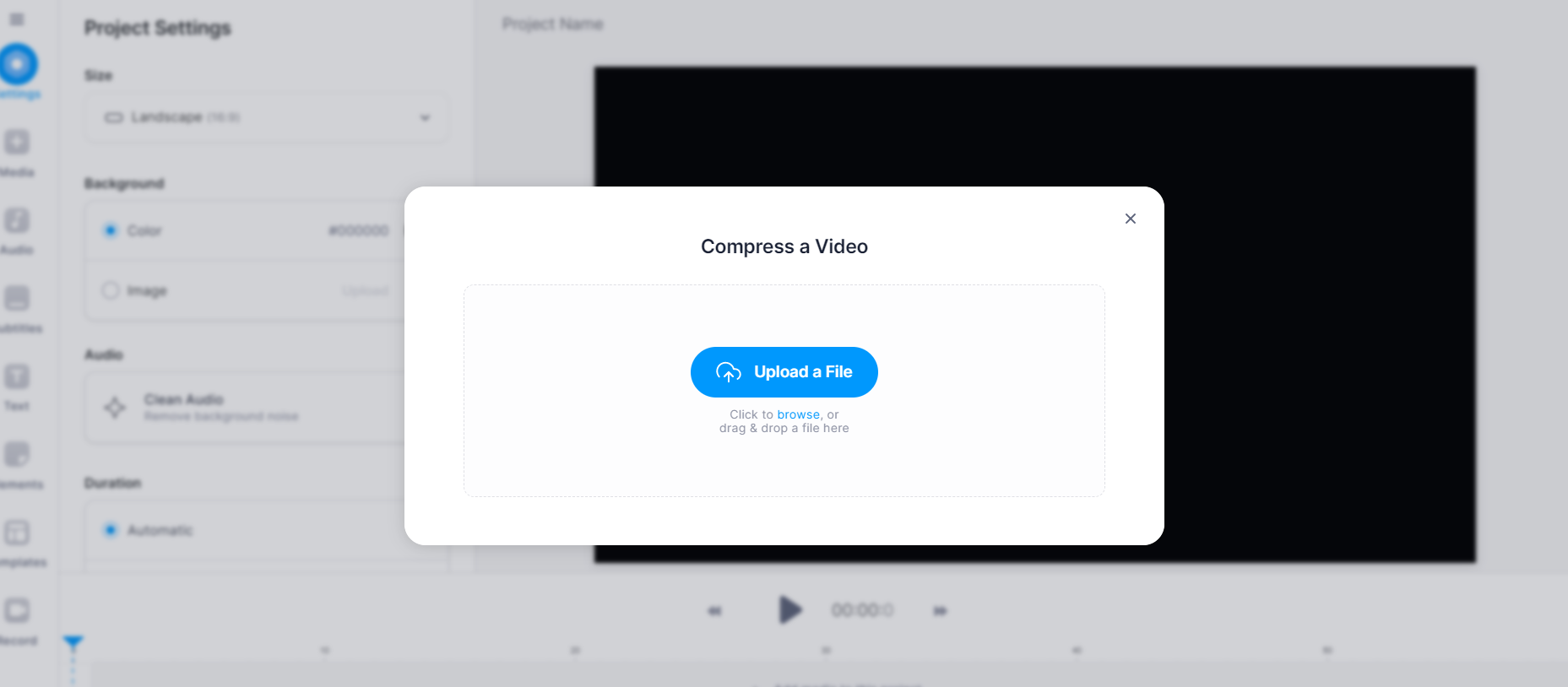
Important Note: You can also compress GIFs on VEED's mobile site by launching it on an iOS or an Android device. However, at the moment, our editor isn't mobile-friendly, so if you want to compress a GIF or a video, we recommend that you use VEED on a laptop or a desktop.
[#TOC2]2. Adjust the Level of Compression Using the Slider[#TOC2]
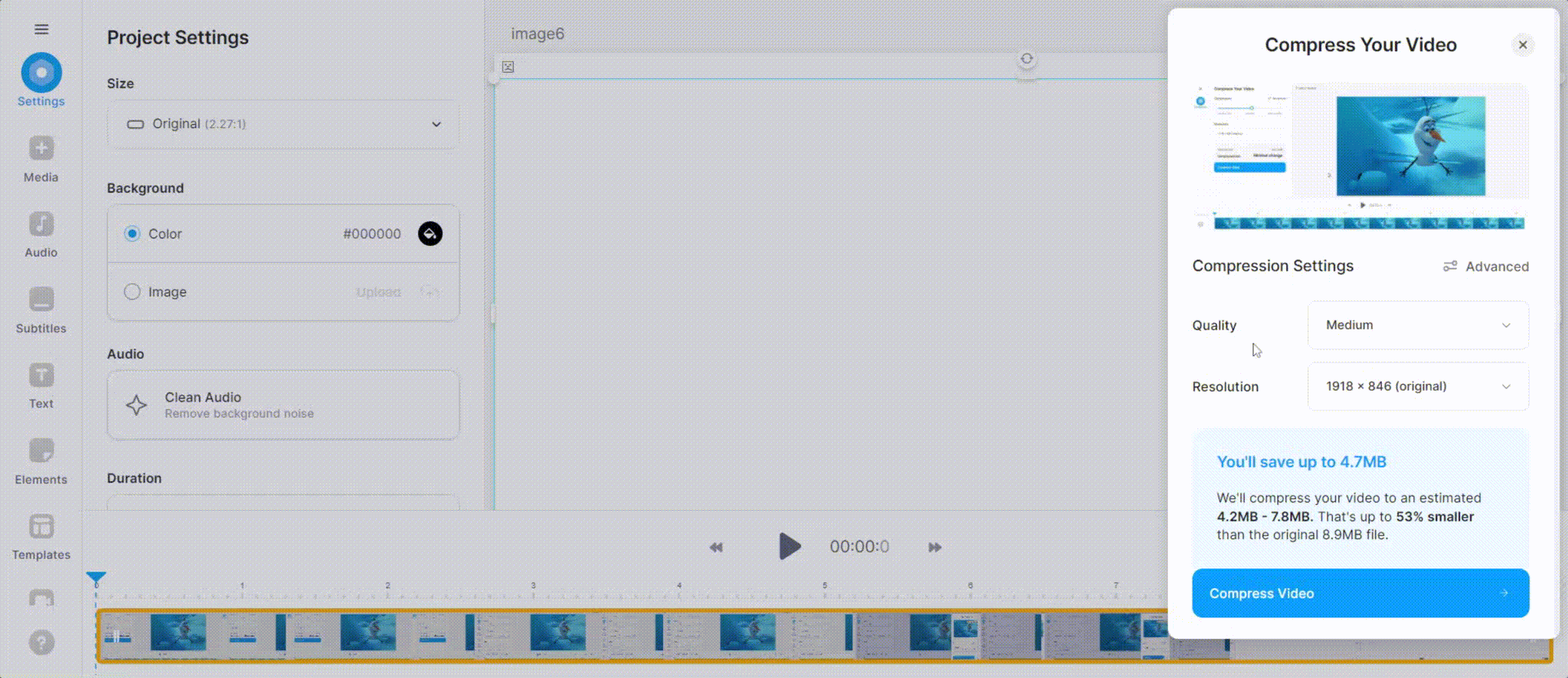
Once you upload your GIF, move your cursor to the small window on the right hand side of your screen that says "Compress Your Video" at the top. You will also be able to see a static preview of your GIF.
Start by specifying the quality for you want for your compressed GIF. Click on the drop-down menu and select your preferred level of quality. Right below "Resolution," you can also instantly check how much your GIF's size would be reduced based on what quality-level you select.
[#TOC3]3. Choose the Resolution from the Dropdown Menu[#TOC3]
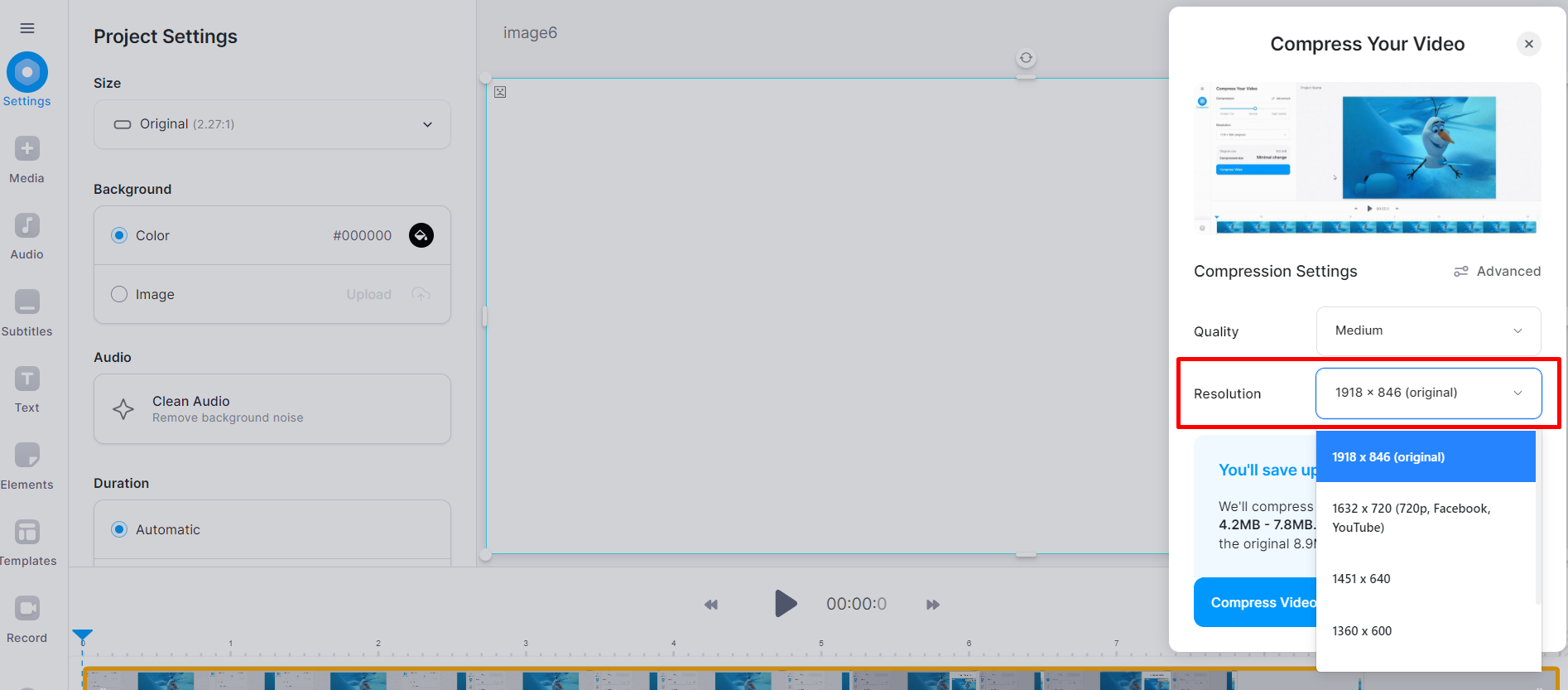
You’ll find the option to adjust the resolution right below the "Quality" menu. Select a resolution size that works best for you.
[#TOC4]4. Go to Advanced Settings for More Options[#TOC4]
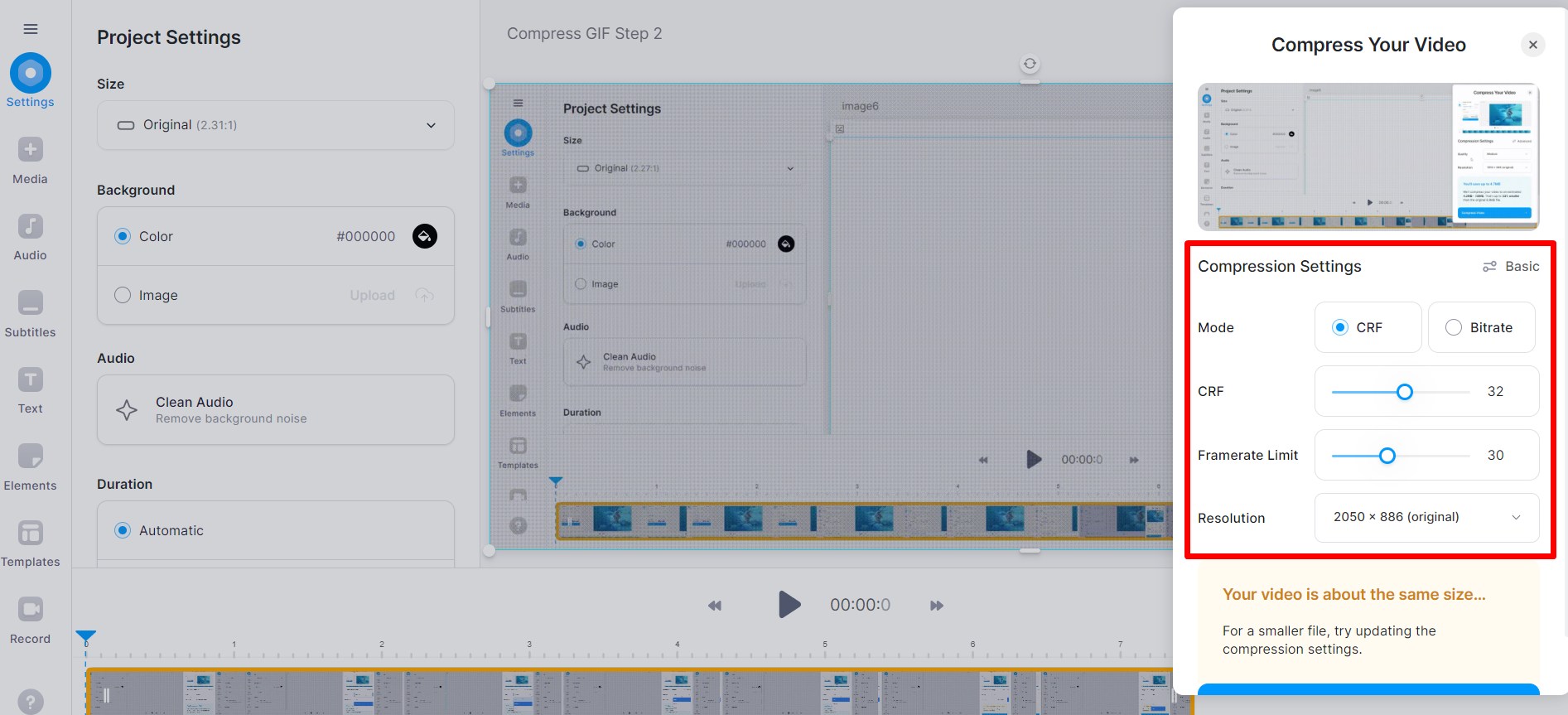
Navigate to the Advanced settings to adjust the Constant Rate Factor (CRF) and Bitrate value. Increasing the CRF or Bitrate value will reduce the GIF size while decreasing this value will increase the file size.
You can also tweak the frame rate to reduce the file size. A lower frame rate means a smaller file size for your GIF.
[#TOC5]5. Press Compress Video to Download GIF[#TOC5]
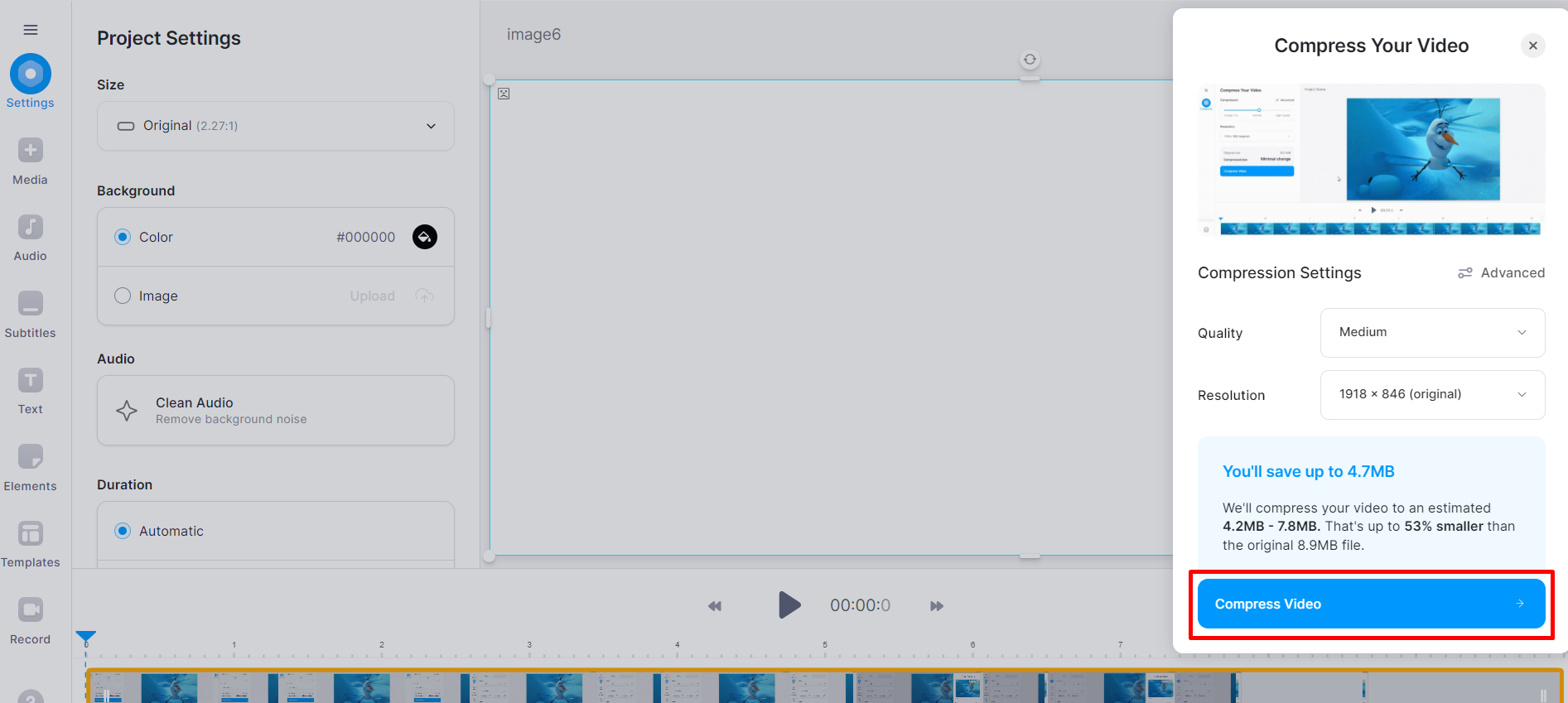
Once you’re done with all the edits, hit the Compress Video button to download the GIF.
Alternatively, you can also click on the video timeline at the bottom of your screen. This will reveal the VEED video editor.
Next go to the Done option on the top right corner and press Export Video.
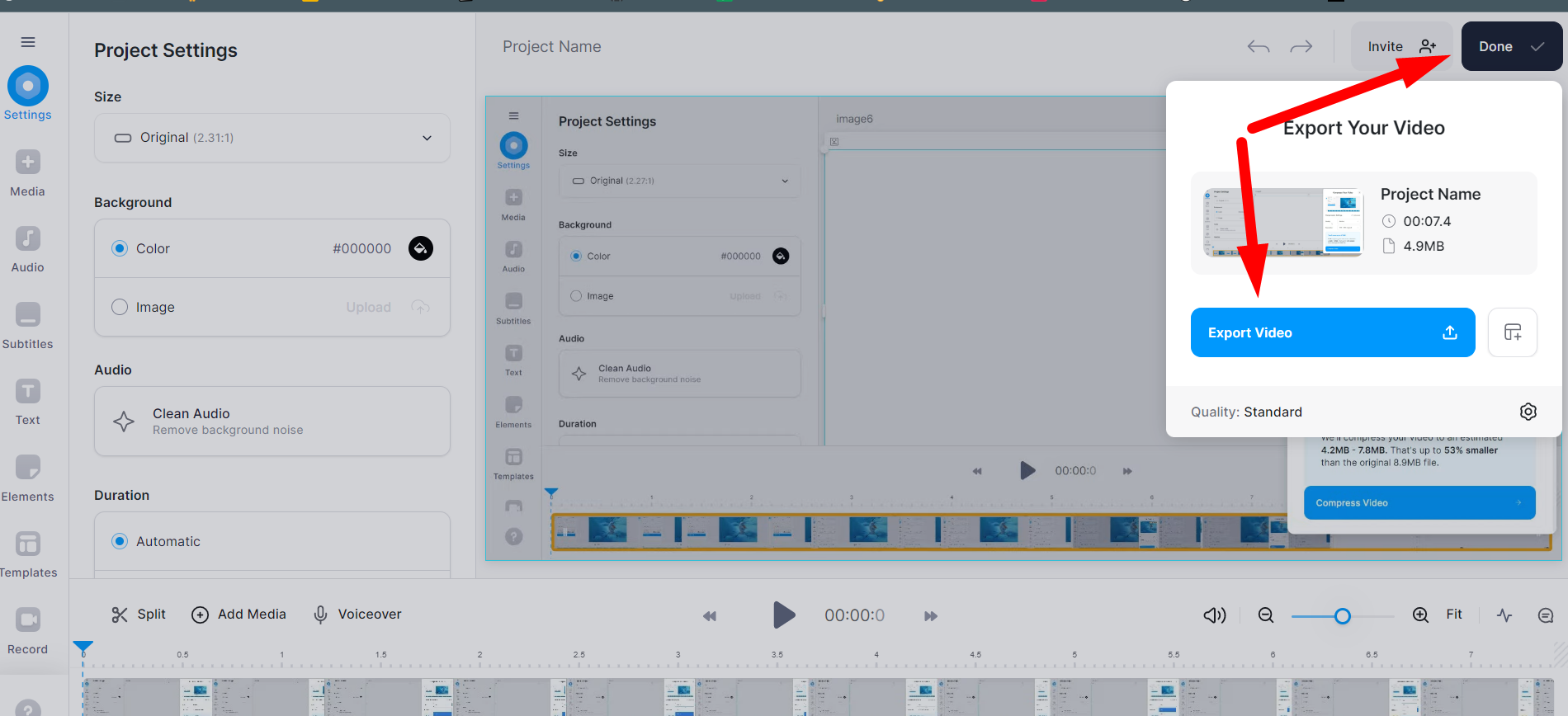
Clicking on the Export button will take you to another page with a video player. Click on download button on the right side of the video player, and select GIF to download your GIF.
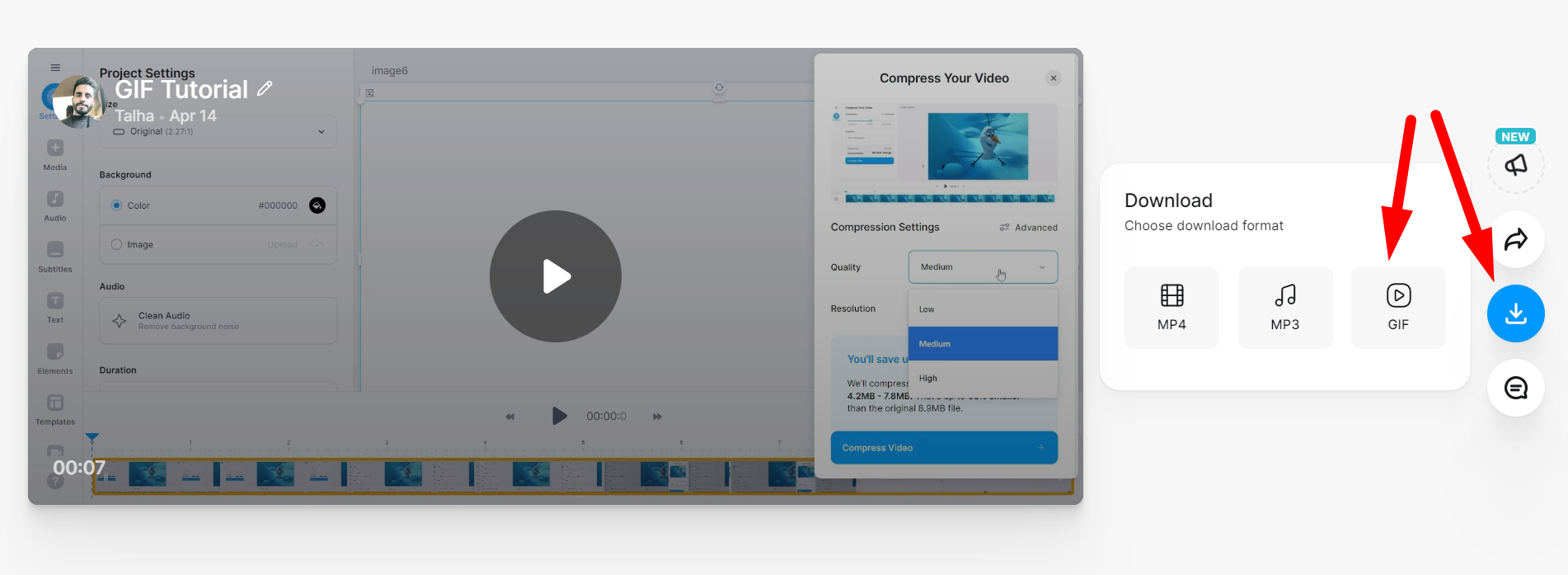

7 Best Practices to Compress GIFS (Without Losing Quality)
Compressing a GIF isn't rocket science, as much as it may seem like it. You can keep your GIF files small by using a GIF compressor or tweaking the GIF's design. We've listed the seven most useful tips to compress GIFs without losing the original quality.
1. Limit the Number of Frames
The number of frames per second (aka frame rate) decides the size of your GIF. The higher the frame rate, the bigger the GIF size is. So, reducing the number of frames can effectively lower your GIF size without losing quality.
Removing complex animations or fast motions is an easy way to reduce the number of frames. Manually select and delete some frames from your GIF’s timeline to tone down these animations and reduce the GIF size.
Alternatively, you can adjust the frame rate directly using the advanced settings on VEED's free GIF compressor.
Here’s a 4.4 MB GIF compressed to <600 KB by reducing the frame rate and resolution.

2. Keep Colors to a Minimum
You can create GIFs using a fixed number of colors, usually in the range of 16, 32, 64, 128, and 256. The more colors you include in a GIF, the more detail goes into each pixel. A complex color palette = bigger file size.
So, limiting the number of colors in your GIFs is another excellent way to reduce their size while retaining quality. Using 64 colors or less is ideal when compressing a GIF. But if the video includes a lot of detail, it's best to stick with a higher range of colors to avoid compromising quality.
For instance, this GIF sticks with a plain background and minimal colors for the main character—keeping the file size small.
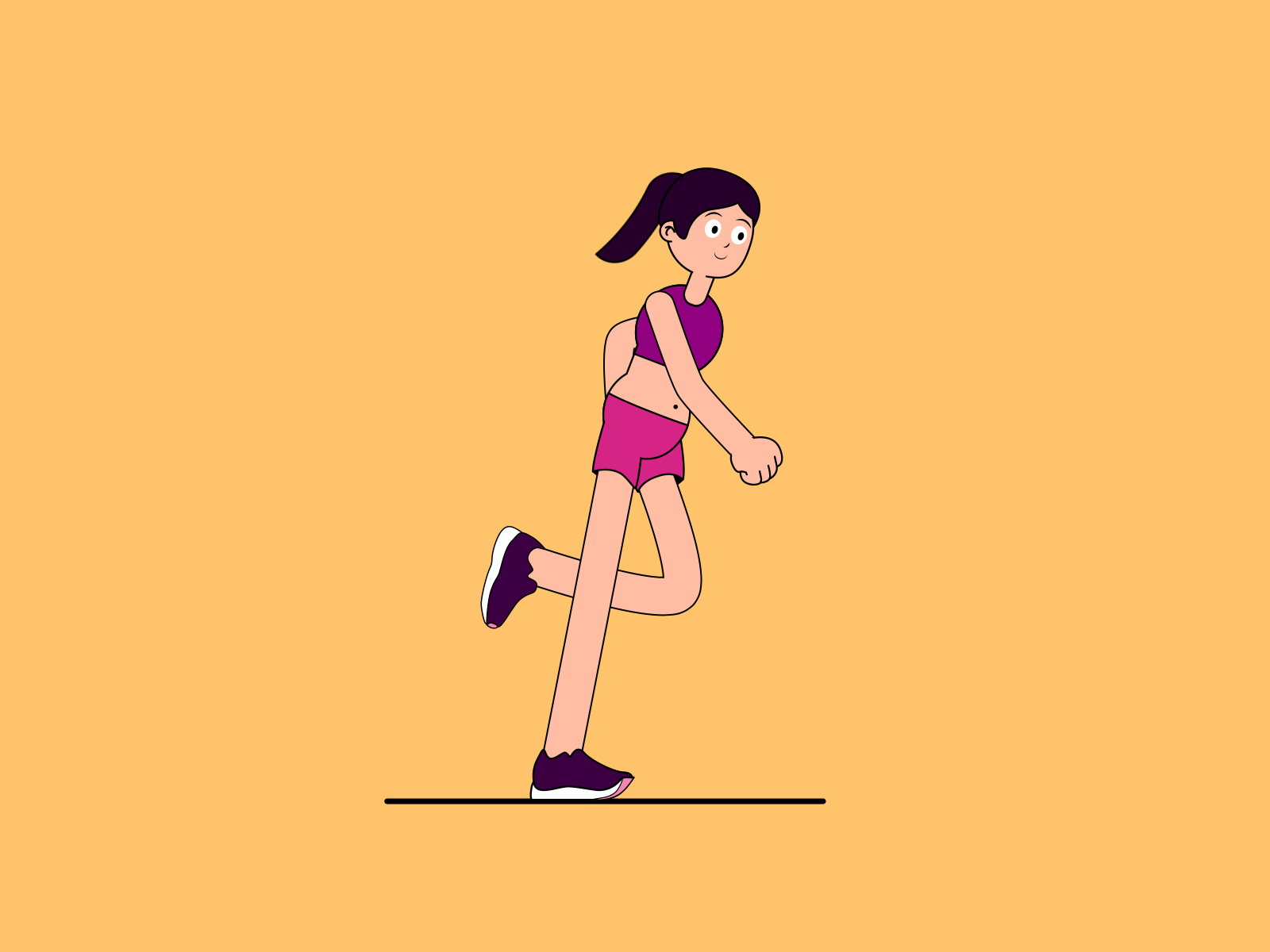
3. Resize Your GIF
If you're working with a huge video—like a YouTube clip or a 4K video, resizing the clip is the easiest way to reduce the file size. Adjust the video's resolution (or aspect ratio) to reduce its overall size.
Remember that resizing your video isn't the same as adjusting its resolution. While changing the resolution affects the video's pixel quality, resizing modifies the video's dimensions—height and width. Reducing the aspect ratio can lower the resolution and retain your GIF's quality.
4. Avoid Gradients
Gradient colors can pixelate and become messy if you compress a GIF to a smaller size. Compressing a video reduces the detail in each pixel, making it difficult to display the gradients correctly.
So, avoid using gradient colors if you want to keep the GIF size to a minimum. If you do want to use a gradient pattern, choose similar color options so that the compressed GIF doesn't look all that bad.
Like we’ve said before, a lower range of colors can produce the best results after compression.
5. Try Removing GIF Backgrounds (if making a GIF pack of yourself)
If you're making a custom GIF pack of yourself to spice up your social media activity, remove the background from all the GIFs to reduce the file size. Crop any extra background detail in the clip and reduce the pixel size to keep the GIF lightweight.
VEED's free video editor lets you remove the background from any video clip and add a solid color to the backdrop for a cleaner aesthetic.
Here’s a GIF with a transparent background.
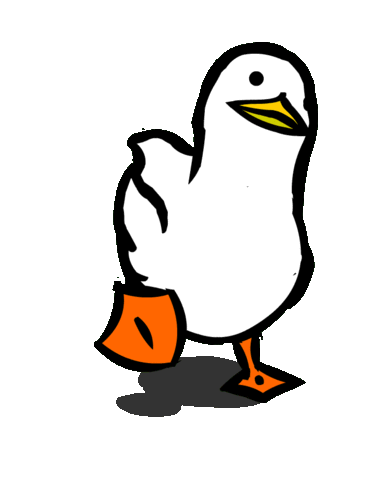
6. Use a Cinemagraph
Complex animations make your GIFs heavier. Instead of including these complicated animations that look bad after compression, you can use a cinemagraph to animate a portion of your image or clip.
Imagine a city street with lights blinking or a night sky with a shooting star—that's what a cinemagraph can help you create. You can design minimal motions for your GIFs to maintain a small file size without spoiling their visual appeal.
Here’s a great example of what this looks like.

7. Increase the CRF Value
The Constant Rate Factor (CRF) determines the quality of output in video streams. The CRF value adjusts the quality of your GIFs to reduce the file size. A higher value means a smaller file size and reduced quality.
VEED's GIF compressor has the advanced setting to adjust the CRF value and reduce the file size. You can move the slider toward the smaller file option to reduce the file size and toward higher quality to increase the size.
Ready to Compress a GIF with VEED?
You don’t have to look far for the perfect solution when VEED’s GIF compressor can do all the heavy lifting for you. It’s as simple as uploading your GIF, tweaking the settings, and downloading the compressed file. Try it yourself!
